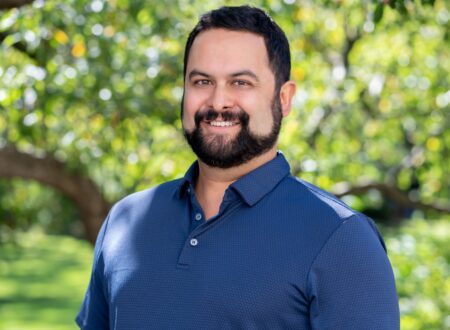On May 25, 2017, OKT hosted the UN Working Group on the issue of human rights and transnational corporations and other business enterprises (the “Working Group”). The Working Group was created by the United Nations Human Rights Council in 2011 to promote business compliance with international human rights standards.
A team from OKT, including Benjamin Brookwell, Sarah Colgrove, Julie-Anne Pariseau, and Oliver MacLaren, made submissions to the Working Group on how Canadian business practices continue to fall short of international standards for protecting indigenous rights. OKT’s full briefing note to the UN can be found here.
Following its visit, the Working Group released a press release about the visit as well as this formal statement.
OKT’s presentation to the Working Group focused on the problems with the model for consultation and accommodation in Canada. These problems include:
- Consultation being underfunded or unfunded, rendering it of limited value;
- Large-scale projects built before adequate consultation is carried out leaving often serious ongoing impacts, and a denial of consultation following development and construction on the rationalization that the impacts have already occurred;
- Limited rights of Indigenous groups to meaningfully withhold consent;
- Consultation being treated as a procedural box to be ticked, rather than a site for ongoing engagement through a nation-to-nation relationship;
- Crown officials engaging in consultation by focusing on the impact on a particular site, rather than indigenous peoples’ jurisdiction over their entire territory;
- Crown officials requiring evidence of site-specific uses before taking Indigenous input seriously and before the scope of impacts to different uses is understood, jeopardizing indigenous intellectual property rights to traditional knowledge;
- Crown agencies failing to clearly delineate which ministries or government officials are responsible for consultation, leading to confused and inefficient engagement;
- Crown agencies informally contacting Indigenous peoples without indicating they are “consulting”, undermining the engagement process and limiting the opportunity for impacted indigenous groups to exercise constitutional rights;
- The Crown delegating consultation to officials or businesses who lack the authority to influence the outcome of the process;
- Consultation not being uniformly applied to legislative processes; and
- Absence of a binding protocol to guide corporate activity that affects Indigenous lands and peoples, notwithstanding that the duty to consult and accommodate applies to Crown decisions including those approving corporate activity.
OKT also raised Canada’s qualified acceptance of the United Nations Declaration on the Rights of Indigenous Peoples (“UNDRIP”) and the principles of Free, Prior, and Informed Consent (“FPIC”) as a significant concern.
In 2016, Canada announced that it was a full supporter of UNDRIP. However, Canada has since explained that UNDRIP will be implemented “in accordance with the existing constitution,” careful qualifying words that act to fetter the full breadth of rights contained in UNDRIP. This has sanctioned a “business as usual” environment where Canada’s consultation and accommodation practice is internally justified as “good enough”. As a result, there is little to no change to government and corporate activity on the ground.
It is long past time for Canada to make consistent regulatory commitments to uphold FPIC. As examples from the development community have begun to demonstrate, where governments create conditions conducive to achieving consent, economic development leads to positive outcomes for both businesses and the indigenous peoples who host them.
A handful of examples of this have occurred in Ontario. In 2012, Toronto based renewable energy company Northland Power Inc. (“NPI”) approached two indigenous governments located at the north and south ends of the St. Clair river (northeast of Detroit, MI, located on the Canadian side of the Canada/U.S. border), Walpole Island First Nation and Aamjiwnaang First Nation (“WIFN” and “AFN” respectively) to build a 100MW on-shore wind farm.
At that time, significant mistrust of wind projects and a strong anti-wind lobby in the surrounding counties created a challenging environment to see wind projects approved.* Rather than focus on a consultation and accommodation approach, Ontario implemented a regulatory environment that would facilitate engagement between the proponent and impacted communities directly, incentivizing the parties to achieve consent and paving the way for meaningful participation in a given project.
Ontario allotted priority points to renewable project applicants who sought to develop a project with an Indigenous partner. In addition, through a mechanism known as the “Aboriginal Price Adder”, Ontario allowed for an increase in the amount of revenue a renewable project earned proportional to their percentage of indigenous ownership. Finally, through the ALGP Program, the province provided a government guarantee to assist indigenous governments secure the financing needed to purchase an ownership stake in a project. By creating the conditions conducive to consent, WIFN and AFN were able to form a partnership with NPI to develop the windfarm project jointly, each holding a 50% ownership stake. This project entered commercial operation in the spring of 2016.
OKT made the following recommendations to the Working Group on how indigenous rights affected by corporate activity can be better protected in Canada:
- Stating clearly that compliance with the UN Guiding Principles on Business and Human Rights means that businesses will comply with the principle of FPIC when they contemplate acts that may affect Indigenous rights, whether or not host states require it.
- Call for Canada to reaffirm its commitment to the International Convention on Civil and Political Rights; the International Covenant on Civil and Political Rights; the Indigenous and Tribal Peoples Convention, 1989 (No. 169) of the International Labour Organization (ILO); UNDRIP; the UN Guiding Principles on Business and Human Rights; and its own Treaties with Indigenous peoples.
- Call for Canada to review its legislation in order to make FPIC binding upon businesses developing projects on traditional territories of Indigenous groups.
- Call for Canada’s political recognition that FPIC includes a right for Indigenous people to withhold consent.
- Remind Canadian governments and companies that international laws also recognize indigenous peoples’ right to substantively participate in decision-making.
- Call for Canadian companies to subscribe and comply with international human rights standards, and for Canadian governments and lenders to require it as a mandatory condition of corporate operations.
- Call for Canada to establish a nation-to-nation forum with equal representation from Canadian and indigenous governments to make decisions about consultation and consent.
- Call on Canada to provide for stable and adequate funding for legal and technical assistance, to ensure full and independent participation by indigenous peoples to the decision-making process.
- Call on Canada to implement FPIC in it environmental assessment processes.
The Working Group wraps up its visit to Canada on Thursday, June 1, 2017. On their last day, the Working Group will hold a brief meeting with government officials in the morning followed by a press conference where they will present preliminary observations from their visit to Canada. After their visit, the Working Group will make written recommendations on how to enhance access to effective remedies for those whose human rights are affected by corporate activity.
By Benjamin Brookwell, Sarah Colgrove, Julie-Anne Pariseau, and Oliver MacLaren
*A third indigenous community, initially interested in participating alongside WIFN and AFN, ultimately declined to participate as a result of these external pressures, but despite their reservations did not obstruct WIFN and AFN from proceeding with the Project.
Related Posts

Indigenous Health Equity Fund
Tuesday, August 6, 2024
In March 2023, the federal government announced its intention to create the Indigenous Health Equity Fund to distribute $2 billion to Indigenous communities over a period…
Read More...
BC Bill 41: A Promising Start to Implementing UNDRIP
The Province of British Columbia is likely to be the first government in Canada to pass legislation to implement the UN Declaration on the Rights of Indigenous Peoples.

Supreme Court affirms that modern Treaties must be honoured
Despite co-management provisions in modern treaties, the Yukon Government acted unilaterally to try to impose what it wanted in the Peel Watershed. Today’s Supreme Court decision…
Read More...


